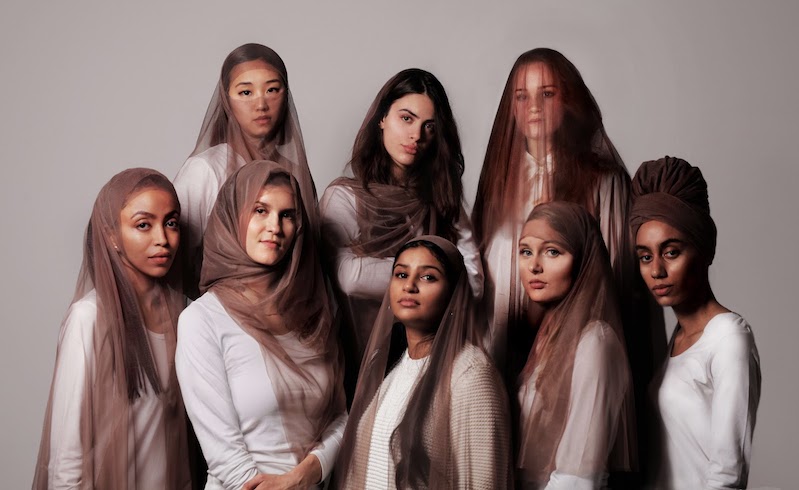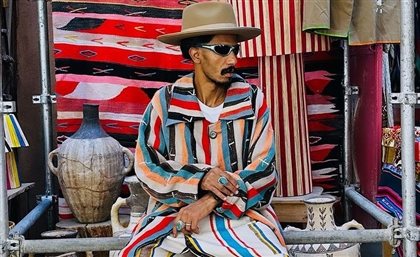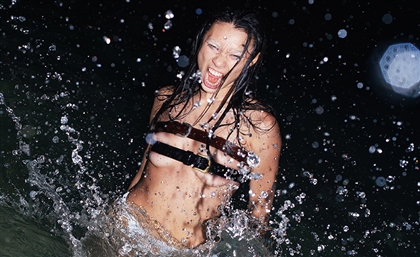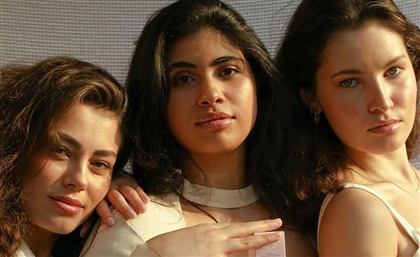This German-Egyptian's Art Project is Dispelling Repressive Notions Attached to the Veil
Isra Abdou is the determined veiled young woman who decided to stand up to her oppressors.

While the 21st century saw renewed ideologies of tolerance and acceptance, remainders of the previous centuries' oppressive views still linger on to this day, some of which include prejudice against women, be it in the workforce, in the household or in society. Being a woman anywhere in the world means you’re catapulted into a conflict of notions such as sexism, prejudice, feminism and the likes. Being a woman in a headscarf anywhere in the world means you've marked yourself with a bull’s eye and, in some cases, that's the same as supplying your oppressors with ammunition.
In a sea of controversy surrounding the veil, a minefield of overlapping and opposing mentalities are setting the stage. And with media as well as both genders within the Muslim community at times claiming the veil to be a form of tyranny, the lines become blurred as to who the actual oppressor is.
These are conversations that 22-year-old (veiled) Isra Abdou is presenting with REDA - an online platform aiming to disperse this notion of repression attached to the veil, and also works to empower Hijabi women, from all races.

Abdou started REDA - which means satisfaction - as an online platform in which to voice her opinions and dissipate the hate surrounding the veil. Abdou wants to fight back the haters with her platform and encourages like-minded women to comment and open discussions. Having had several run-ins herself with not-so-subtle acts of discrimination, Abdou is not stranger to prejudice.
"I remember one day I was walking home from elementary school and two men came up to me and at first put their hand on my headscarf. Then they tried pulling it off to touch my hair,” said Abdou, who’s been veiled since she was 12 years old. “I got so frightened and I was little girl. I just pushed them away and ran back home. That was the first time I noticed people hate on my Hijab.”
Those opposed to the Hijab – both men and women – might have interpreted this incident a little differently, perhaps instigating that in a country like Germany, Abdou was promoting the exact opposite reaction that the veil is meant to suppress. And that is that Abdou was attracting more attention with the veil rather than without it. Either way, that didn’t halt a determined Abdou. Having had another encounter with Hijabi–bashing, Abdou infers that in Germany, she ran into a lot of backlash when applying to jobs.

“For my teaching course, I had to do an internship at a school. And while the principal interviewing me thought I was a perfect fit for the internship, he told me he would never give me a full-time job. And then he went on to say while pointing at my headscarf, it’s because of this thing here,” said Abdou.
Having dropped out of university a few years later, Abdou was met by more negative feedback when she applied for jobs.
"Berlin’s labour court rules that women in the workforce are not to wear any items of clothing on their heads as part of a neutrality of ideology law," explained Abdou.
Being met by a significant amount of rejection, Abdou was growing hopeless and began asking existential questions pertaining to her decisions and what she hoped to achieve. She became conflicted on what she was to do. But you know what they say; it’s always darkest before dawn.

“I'd read so many comments on how women should stop wearing hijab saying that it should be taken off because 'it’s Germany'. And there were other comments pointing out the way veiled women chose to dress, sometimes in tight pants. And regardless of the comments, we were always told to do the same thing, and that is to 'take it off',” said Abdou of how REDA came to be. “Some of the anti-hijabi people associated the veil with a form of control by men. And to me, that’s dangerous. Because that’s when Hijab starts losing it’s true purpose and is shadowed by all the white noise. And that’s when I decided to start REDA”
REDA seeks to battle the hate and disperse the negative stigma associated with what is meant to be an emblem of empowerment and strength for a woman. The message behind her movement is one of peace and acceptance for all forms of veil.

"Hate shouldn’t be fought with hate. The way to change this, is to talk to people and try to understand where the hatred comes from. To talk to the oppressors and raise your voice. Islam isn’t a hateful religion. And those of that opinion have clearly not read into the religion.” Abdo told us of her way of fighting back. “There’s a difference between a peaceful religion and bad people, and confusing those two concepts is what leads to all the hatred. I think raising your voice and pushing back hate with respect and love is the way to go”.
- Previous Article Dr.Sisilove or How (Not) To Diffuse A Bomb
- Next Article Talalya: Crochet Beachwear Empowering Egyptian Craftswomen
Trending This Week
-
Apr 13, 2024
























